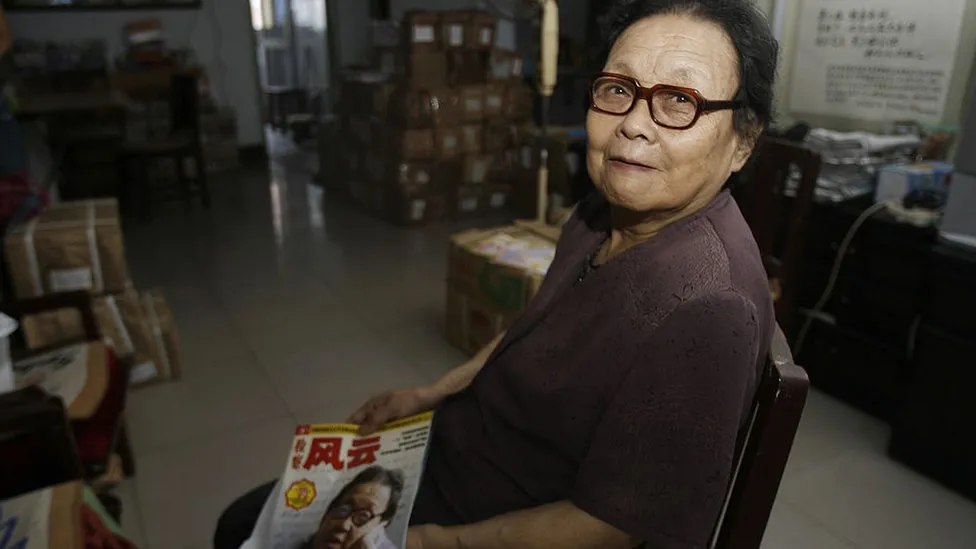Gao Yaojie, a renowned dissident doctor who exposed the Aids epidemic in rural China, has died aged 95.
Dr Gao died of natural causes in New York, where she had been in exile since 2009, a friend of hers told the BBC. Her work uncovered how businesses selling blood led to the spread of HIV in the countryside.
She was at the forefront of Aids activism in China and travelled across the country treating patients, often at her own expense. Born in Shandong province in1927, Dr Gao was a gynaecologist by training. She encountered her first AIDS patient in the central province of Henan in 1996.
Selling blood was common in rural areas such as Henan, where Dr Gao lived, in the 1980s and 1990s. Limited economic opportunities among farming communities left them with few other options to make a living – and blood-selling was often backed by local governments. But with few cases of HIV being diagnosed in rural China at the time, and low awareness of the disease, blood was also collected from HIV+ patients, leading to the spread of the disease.
At that time, Chinese authorities were saying that HIV could be transmitted in two ways – through sex or from mother-to-child during pregnancy. Dr Gao had a realisation when she found that one of her patients did not fall into either category but had a history of blood transfusion.
Known as “Grandma Gao” – she visited villages in Henan to investigate the scale of Aids cases. She reportedly visited more than 100 “Aids villages” and met more than 1,000 families. She often gave away brought printed resources on Aids, food and clothes – mostly at her own expense.
Henan officials initially covered up the blood-selling practice, but eventually shut the businesses down in the mid-1990s. But Dr Gao kept speaking up about the spread of HIV in the country.
“It's bigger. It's nationwide, everywhere. I have seen everything with my own eyes. Blood selling is illegal. In the past, it was open and public. Now, it's underground,” she said in an interview with the BBC in 2010.

Dr Gao had claimed that 10 million people were infected with HIV in China, far greater than Beijing's official figure of 740,000. But this was disputed by officials. She was not the first the Chinese doctor that exposed the AIDS epidemic, but it was her efforts that made the situation known to the country and beyond.
International media reported on Dr Gao's findings in early 2000s. She also received numerous domestic and international awards. Chinese authorities were initially lenient with her.
State broadcaster CCTV selected her as one of the “figures that moved China” in 2003, and praised her “profound knowledge and rational thinking which dispelled people's prejudices and fears, and her mother-like love and selfless enthusiasm that warmed the helplessness of the vulnerable”.
Former US Secretary of State Hillary Clinton said Dr Gao was “simply one of the bravest people I know”. But Henan authorities later grew uncomfortable with her criticism of officials. She left China in 2009, in the face of surveillance and growing pressure from the local government.
She moved to New York and lived there until she died. Despite her long absence from China, her death has been mourned by some Chinese online.
“She was a great figure. But young people nowadays may not know about that history,” said one user on social media platform Weibo.
“Our generation of news workers or news readers know her and remember her. It [the news] also reminded me of other Chinese doctors' names such as Jiang Yanyong and Li Wenliang,” said Chinese journalist Li Weiao on Weibo, referring to the whistleblowers of the Sars outbreak of 2003 and the Covid pandemic respectively.
— CutC by bbc.com


